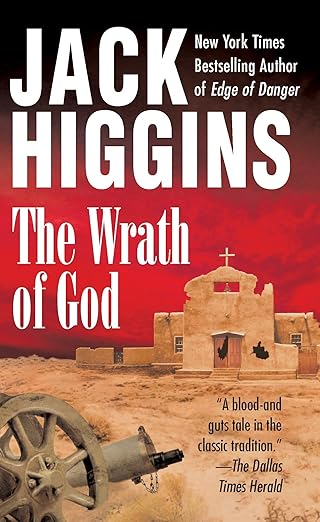The chief of police usually managed to execute somebody round about
noon on most days of the week, just to encourage the rest of the population,
which gives a fair idea of how things were in that part of Mexico at the time.
That is the opening line of Jack Higgins’ 1971 novel.
If you recognize the name, yes, that Jack Higgins, of The Eagle Has
Landed and other such uber-British stiff-upper-lipped adventure fare.
For the record, I’ve read and enjoyed immensely The Eagle Has
Landed and Storm Warning but found his later work to fall off a bit.
But what was solid, was solid.
This novel is his only stab at a Western. A western set in the Mexican
Revolution. Rife with dust, sweat, venal authorities and half-venal antiheroes.
This novel plays like a lost Sergio Leone or Robert Aldrich Western.
One can easily imagine a ‘70s era Lee Marvin, Richard Harris, Rod Steiger
and Fernando Lamas eating these chewy characters alive.
This is a solid, briskly paced testosterone fueled adventure filled
with fine imagery.
I regret Mr. Higgins did not write more in the genre, but I will salve
myself by delving deeper into his earlier work.
If anything I stated here is your cuppa, then you’re in for a fine
afternoon.
Enjoy!









